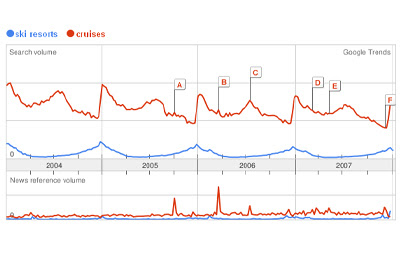Pronounced "cool", Cuil is a new search engine built by Anna Patterson, a search engine wiz who used to work at Google. While there was a lot of hype and excitement about the launch of the site, those seeking an alternative search engine might have to temper their enthusiasm a bit.
While there are some interesting new features in Cuil, it has had a tremendously difficult time in maintaining relevancy and the meaningfulness of search results (no TravelOregon.com for an "Oregon" search for example!). Moreover, following the wake of their PR push last week, their servers have been overwhelmed and users have experienced significant downtime. As our friend Paul Wille notes in his blog, Cuil has four notable features:
Relevancy Approach- Unlike depending on the quantity and quality of links, it "drills down" into the pages they link to and analyze the content for relevancy
“Article”-based search results - Rather than the usual list of text-only links, photos and paragraph snippets of content are returned as part of the search results (Similar to Ask.com)
Dynamic Faceted Searching - Faceted searching is the concept of narrowing search results based on multiple “facets” or aspects of your search results; for example when you search for "Oregon", you can narrow your results based on categories such as "regions of Oregon", "real estate" etc. etc.
Privacy - Cuil promises not to store search history of search engines
Read the full review on Cuil





